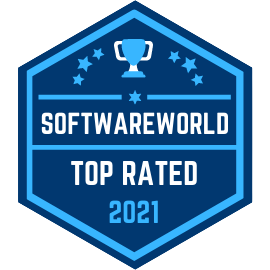There comes a time once your business gets too large to be managed manually. When this happens, it’s a good idea to turn to enterprise software to help you automate the process. Let’s chat about the differences between Enterprise Software Development and Regular Software Development.
What is Enterprise Software Development?
Enterprise application software (EAS), is computer software used to satisfy the needs of an organization rather than individual users. Such organizations include businesses, schools, interest-based user groups, clubs, charities, and governments.
Enterprise Software Development is a multi-disciplinary approach, and often includes functions such as CRM (Customer Relationship Management), BI (Business Intelligence), operations and order fulfillment, online payment processing, accounting, just to name a few.
How is it different from normal software?
- It is intended for users across disciplines – In almost all software that’s built, there are multiple different types of users. However, when building enterprise software, this aspect is amplified. Enterprise application software (EAS), is computer software used to satisfy the needs of an organization rather than individual users. It typically is a multi-disciplinary approach, which means it has to be designed for users across many different business functions of an organization. The software has to work smoothly as a unit serving the business needs, however, it has to also be smart enough to serve each user in a way that allows them to accomplish the task they need to be able to easily complete. Enterprise software will likely have a different set of permissions and views designed specifically for different roles. Building custom software for your enterprise organization allows you to custom your software to meet your unique business needs and focus on the aspects of your business that would have the most impact.
- EAS is also typically owned outright – This means that owners have sole ownership of it and it is not being drained by other users. This also allows them to customize more easily, with in-house developers or external support making any changes that are needed. It is typically a web application and relies on the internet for effective use.
- Reporting – Creating queries and reporting on normal software is quite a challenge. Since they usually scan the entire database, queries and reports can increase the processing costs. But, with enterprise software, third-party tools can be used to perform the querying and reporting.
- Features – Due to limited customizability, off the shelf l software may not be able to offer all the features that your organization is looking for or that it needs. Enterprise software will be able to fulfill all the functional needs of your organization.
Why build custom enterprise software instead of using standard third-party enterprise tools?
With a great variety of industries, it’s hard to come by two identical enterprises. Each of them has its own unique processes that have been up and running for many years. That’s why enterprises often have difficulties keeping up with the times. Here are a few advantages to keep in mind:
- Visibility into the business as a whole – Enterprise software lets you see how the whole business is running in real time. You don’t have to pull a report from this software, build a spreadsheet from that data, and throw together a slideshow in order to communicate the performance of the company. Enterprise software is typically built to serve the entire organization, therefore it is able to provide business intelligence and actionable insights based on data that comes from various sources: marketing, sales, manufacturing, HR, etc.
- Standardize processes and cut costs – There are initial costs to pay to the software development service provider, but in the long term it will have a positive effect on your business due to lower cost. It will standardize the way you work across the organization, and increase the efficiency and predictability of your operations.
- Scalable – If you are building custom enterprise software, you will be set up to scale. No matter the size of the business now or in the future, it will work. Your software can then grow with you as an organization.
- Competitive advantage – For many reasons already discussed, EAS gives companies a competitive advantage: the ability to access your current situation and forecast where you’re heading, streamline and standardize your process, give you the tools to deliver the best customer service, and more.
Have more questions about enterprise software development? We’d love to answer them. Schedule a free consultation.









